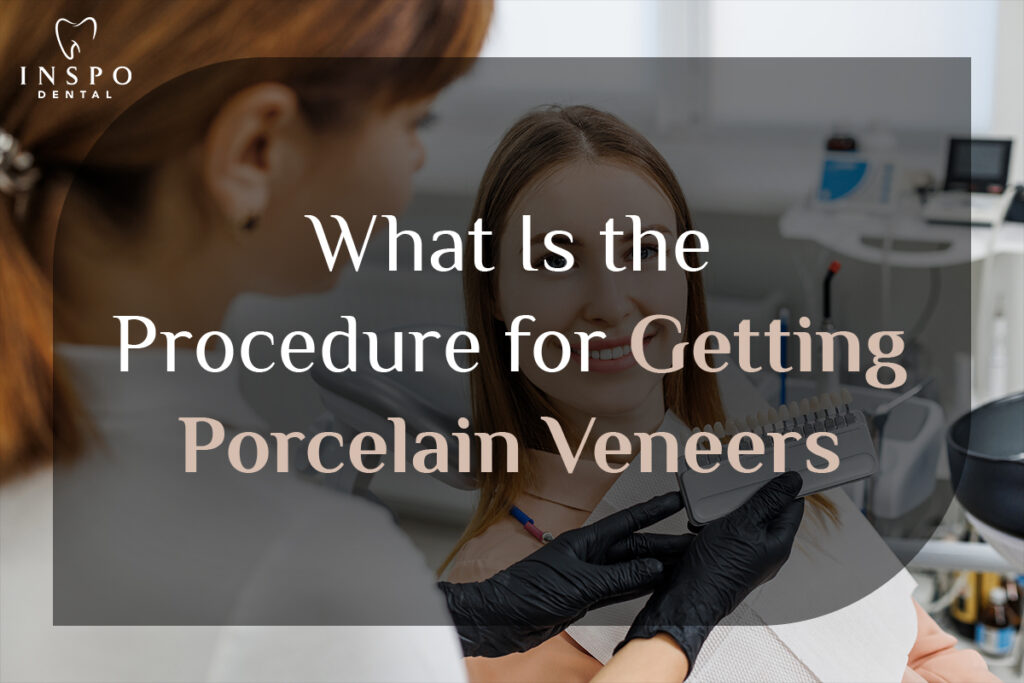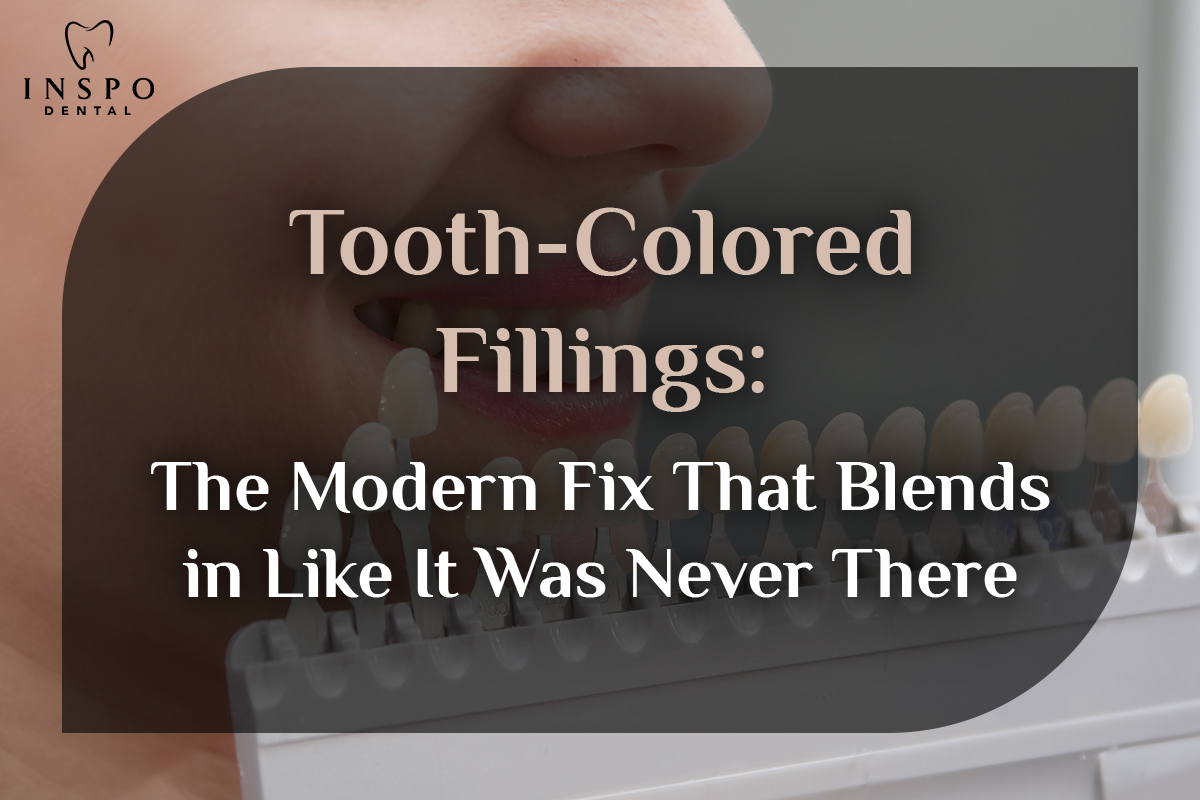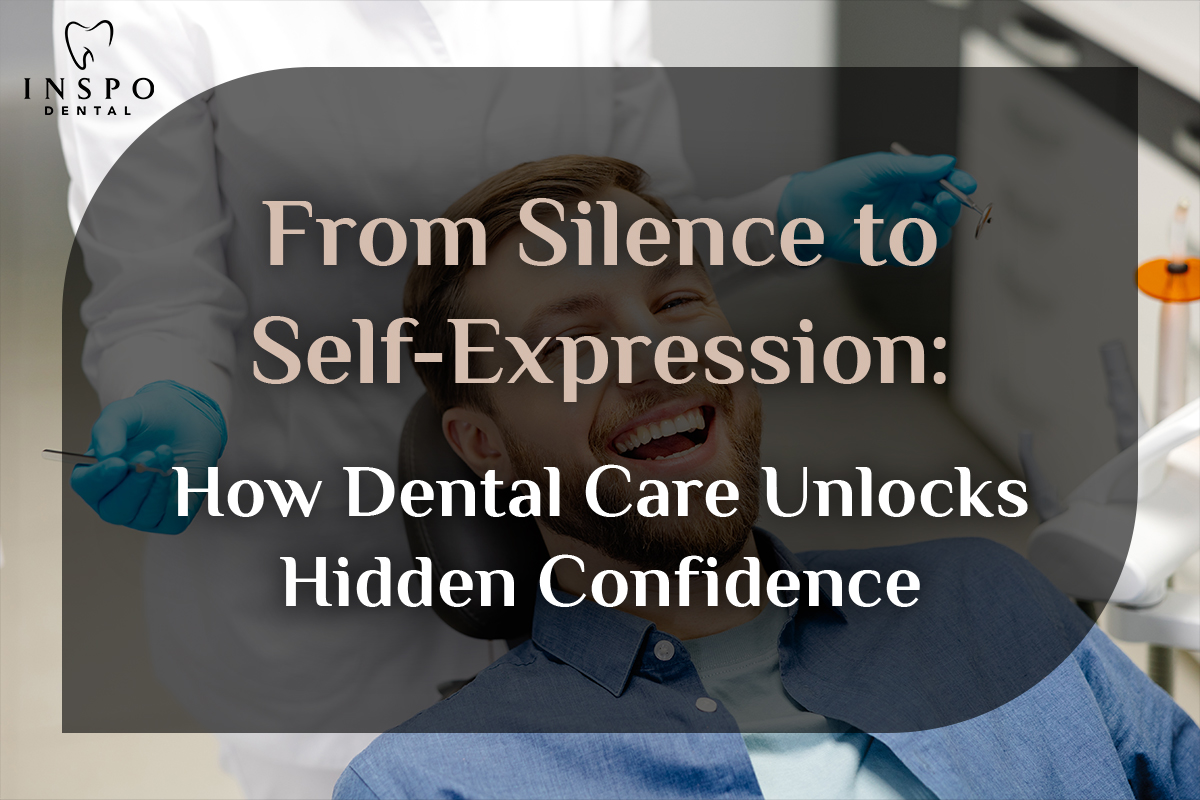
The procedure for porcelain veneers typically involves several steps, including consultation, preparation, customization, and placement. Here’s an overview of the typical process:
- Initial Consultation: The process begins with an initial consultation with a qualified cosmetic dentist. During this appointment, you’ll discuss your goals and expectations for improving your smile with porcelain veneers. The dentist will evaluate your oral health, assess the condition of your teeth, and determine if you’re a suitable candidate for veneers.
- Treatment Planning: If porcelain veneers are deemed appropriate for your case, the dentist will create a personalized treatment plan tailored to your needs and preferences. This plan may include digital smile design simulations or mock-ups to help you visualize the anticipated results and make informed decisions about your treatment.
- Preparation: Before placing porcelain veneers, the dentist will prepare your teeth by removing a thin layer of enamel from the front surface. This is typically done to accommodate the thickness of the veneers and ensure a natural-looking result. Local anesthesia may be administered to minimize discomfort during the preparation process.
- Impressions: Once your teeth are prepared, the dentist will take impressions or digital scans of your teeth to create custom-made veneers that fit precisely over your teeth. These impressions will be sent to a dental laboratory where skilled technicians will fabricate your veneers according to the dentist’s specifications.
- Temporary Veneers (Optional): In some cases, temporary veneers may be placed on your teeth while the permanent ones are being fabricated in the dental laboratory. Temporary veneers protect your prepared teeth and provide an approximation of the final result until your permanent veneers are ready.
- Veneer Fabrication: In the dental laboratory, skilled technicians will use the impressions or digital scans of your teeth to fabricate your porcelain veneers. They will carefully craft each veneer to match the desired size, shape, color, and translucency, ensuring a lifelike appearance and a precise fit.
- Veneer Try-In: Once your porcelain veneers are ready, you’ll return to the dentist’s office for a try-in appointment. During this appointment, the dentist will temporarily place the veneers on your teeth to assess their fit, appearance, and functionality. Any necessary adjustments can be made at this stage to ensure optimal results.
- Permanent Placement: If you and the dentist are satisfied with the appearance and fit of the veneers during the try-in appointment, the permanent veneers will be bonded to your teeth using a strong dental adhesive. The dentist will carefully position each veneer and securely bond it to the tooth surface, creating a durable and long-lasting restoration.
- Final Adjustments: After the veneers are bonded in place, the dentist may make final adjustments to ensure proper alignment, bite, and aesthetics. This may involve polishing the veneers, fine-tuning the shape or contours, and ensuring that your bite feels comfortable and natural.
- Post-Placement Care: Once your porcelain veneers are in place, the dentist will provide instructions for post-placement care and maintenance. You’ll be advised to maintain good oral hygiene practices, avoid biting or chewing on hard objects, and attend regular dental check-ups to ensure the longevity and integrity of your veneers.
Overall, the procedure for porcelain veneers is a multi-step process that involves careful planning, preparation, customization, and placement to achieve a beautiful and natural-looking smile transformation. Working with a skilled and experienced cosmetic dentist is essential to ensure successful outcomes and optimal aesthetic results. Here are some additional considerations for your porcelain veneer procedure:
- Follow-Up Appointments: After the permanent veneers are placed, you may have follow-up appointments scheduled to check on the condition of your veneers and ensure that they are functioning properly. These appointments allow the dentist to address any concerns or issues that may arise and make any necessary adjustments to your veneers.
- Sensitivity Management: Some patients may experience temporary sensitivity to hot or cold temperatures following the placement of porcelain veneers. This sensitivity typically subsides within a few days to a week as the teeth adjust to the new restorations. Your dentist may recommend using desensitizing toothpaste or mouthwash to alleviate discomfort during this time.
- Long-Term Maintenance: Proper maintenance is essential for the longevity of porcelain veneers. You’ll need to maintain good oral hygiene habits, including brushing, flossing, and regular dental check-ups. Avoiding habits such as biting on hard objects, grinding your teeth, or using your teeth as tools can help prevent damage to your veneers and prolong their lifespan.
- Stain Resistance: Porcelain veneers are highly resistant to stains compared to natural tooth enamel. However, it’s still important to minimize exposure to staining substances such as coffee, tea, red wine, and tobacco products to preserve the appearance of your veneers. Your dentist may recommend occasional professional cleanings or polishing to remove surface stains and maintain the natural luster of your veneers.
- Replacement Considerations: While porcelain veneers are durable and long-lasting, they may eventually need to be replaced due to normal wear and tear or damage. The lifespan of veneers can vary depending on factors such as oral hygiene habits, bite forces, and maintenance. Your dentist can assess the condition of your veneers during routine check-ups and recommend replacement if necessary.
- Alternative Options: In some cases, porcelain veneers may not be the most suitable option for smile enhancement. Your dentist may discuss alternative treatments such as composite veneers, dental bonding, orthodontic treatment, or other cosmetic procedures based on your specific needs and preferences. It’s important to explore all available options and make an informed decision about the best treatment approach for achieving your desired smile makeover.
- Cost and Insurance Coverage: Porcelain veneers are considered a cosmetic dental procedure and may not be covered by dental insurance plans. The cost of veneers can vary depending on factors such as the number of veneers needed, the complexity of the case, and the geographic location of the dental practice. Before undergoing treatment, it’s essential to discuss the cost of porcelain veneers with your dentist and explore available payment options or financing plans.
- Customization and Natural Appearance: One of the key benefits of porcelain veneers is their ability to mimic the natural appearance of teeth. Veneers are custom-made to match the color, shape, size, and texture of your natural teeth, resulting in a seamless and lifelike smile transformation. Your dentist will work closely with you to ensure that your veneers blend harmoniously with your existing teeth and complement your facial features for a natural-looking result.
- Durability and Strength: Porcelain veneers are highly durable and resistant to chipping, staining, and wear when properly cared for. With good oral hygiene practices and regular dental check-ups, porcelain veneers can last for many years. However, it’s essential to avoid habits that can damage your veneers, such as biting on hard objects, chewing ice, or using your teeth as tools. By taking precautions and following post-treatment care instructions, you can maximize the longevity of your veneers and enjoy a beautiful smile for years to come.
- Smile Enhancement and Confidence: Porcelain veneers can have a significant impact on your overall appearance and self-confidence. By addressing cosmetic concerns such as discoloration, gaps, chips, or misalignment, veneers can enhance the aesthetics of your smile and boost your confidence in social and professional settings. Many patients report feeling more attractive, youthful, and self-assured after undergoing porcelain veneer treatment, leading to improved quality of life and increased satisfaction with their appearance.
- Patient Satisfaction and Reviews: Before undergoing porcelain veneer treatment, it can be helpful to read reviews and testimonials from other patients who have undergone similar procedures. Patient satisfaction ratings and testimonials can provide valuable insights into the quality of care, treatment outcomes, and overall experience at a dental practice. Additionally, discussing your expectations and concerns with your dentist during the consultation process can help ensure that you have realistic expectations and are fully informed about the potential benefits and limitations of porcelain veneers.
- Lifespan and Durability: Porcelain veneers are known for their durability and longevity, with an average lifespan of 10 to 15 years or more with proper care. However, the lifespan of veneers can vary depending on factors such as oral hygiene practices, lifestyle habits, and natural wear and tear. While porcelain is resistant to staining and decay, it can still chip or fracture under excessive force or pressure. It’s essential to follow your dentist’s recommendations for oral care and maintenance to prolong the lifespan of your veneers and minimize the risk of damage.
- Cost and Financing Options: The cost of porcelain veneers can vary depending on factors such as the number of veneers needed, the complexity of the case, and the geographic location of the dental practice. Porcelain veneers are considered a cosmetic dental procedure and may not be covered by dental insurance. However, many dental practices offer financing options or payment plans to help make treatment more affordable for patients. Be sure to inquire about the cost of veneers and explore financing options with your dentist or their office staff before proceeding with treatment.
- Reversibility: While porcelain veneers offer a permanent solution for enhancing the appearance of your smile, it’s important to understand that the process is irreversible. In order to place veneers, a thin layer of enamel must be removed from the front surface of the teeth to accommodate the veneers. Once this enamel is removed, it cannot be replaced, and the teeth will always require some form of restoration. It’s crucial to carefully consider your decision and discuss any concerns with your dentist before proceeding with porcelain veneers.
- Post-Placement Adjustments: After your porcelain veneers are placed, you may experience some initial adjustments as you become accustomed to the new restorations. This may include minor changes in bite alignment, speech patterns, or oral sensations. These adjustments are normal and typically subside within a few days to a week as your mouth adapts to the veneers. If you experience any persistent discomfort or issues with your veneers, be sure to contact your dentist for further evaluation and assistance.
- Smile Enhancement Benefits: Porcelain veneers offer numerous cosmetic benefits beyond simply improving the appearance of your teeth. Veneers can enhance the shape, size, and symmetry of your teeth, creating a more uniform and aesthetically pleasing smile. They can also conceal a variety of dental imperfections, including chips, cracks, stains, gaps, and misalignments. Additionally, veneers can improve your self-confidence and self-esteem by providing you with a radiant and confident smile that you’ll be proud to share with the world.
- Preventive Care: While porcelain veneers are highly durable and resistant to staining and decay, it’s important to maintain good oral hygiene practices to ensure their longevity. Brush your teeth at least twice a day with a fluoride toothpaste, floss daily to remove plaque and debris from between your teeth, and rinse with an antiseptic mouthwash to help reduce oral bacteria. Regular dental check-ups and cleanings are also essential for monitoring the health of your veneers and detecting any issues early on.
- Customization Options: Porcelain veneers can be customized to achieve your desired aesthetic goals, including the color, shape, size, and translucency of the veneers. Your dentist will work closely with you to select the most appropriate shade and characteristics that complement your facial features, skin tone, and smile line. Digital smile design technology and mock-up models may be used to preview the final results and ensure that you’re satisfied with the proposed changes before the veneers are fabricated.
- Temporary Sensitivity: It’s common to experience temporary sensitivity to hot or cold temperatures following the placement of porcelain veneers. This sensitivity typically subsides within a few days to a week as the teeth adjust to the new restorations. Over-the-counter pain relievers or desensitizing toothpaste can help alleviate discomfort during this time. If sensitivity persists or worsens, be sure to contact your dentist for further evaluation and management.
- Regular Maintenance: Porcelain veneers require minimal maintenance compared to natural teeth, but it’s important to care for them properly to ensure their longevity and appearance. Avoid habits that can damage or stain your veneers, such as biting on hard objects, chewing ice, or using your teeth as tools. Limit your consumption of staining substances such as coffee, tea, red wine, and tobacco products, and rinse your mouth with water after consuming them to minimize their impact on your veneers.
- Long-Term Satisfaction: Porcelain veneers can significantly enhance the appearance of your smile and boost your confidence and self-esteem. However, it’s essential to have realistic expectations about the outcome of the procedure and understand that veneers are not a one-size-fits-all solution. Communicate openly with your dentist about your goals and concerns, and collaborate closely throughout the treatment process to achieve the best possible results. With proper care and maintenance, porcelain veneers can provide you with a beautiful and confident smile that lasts for many years to come.
Overall, porcelain veneers offer a versatile and effective solution for enhancing the appearance of your smile and achieving your aesthetic goals. By considering factors such as cost, customization, durability, and patient satisfaction, you can make an informed decision about whether porcelain veneers are the right choice for your smile makeover. Working with a skilled and experienced cosmetic dentist is key to achieving beautiful, natural-looking results and enjoying the many benefits that porcelain veneers have to offer.






